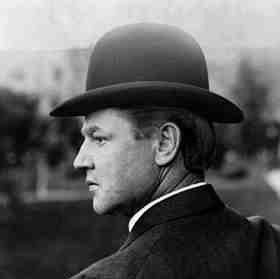- 07 Jan 2009 20:00
#1750464
This is really just a direct, grassroots form of propagandizing.
I didn't cite this with libelous intent, but thank you for the information.
Every country has dozens of "internal antagonisms". This doesn't make any sense. Any country that wants to go anywhere has to abandon pointless ideology and rule pragmatically. The actions undertaken perhaps reflected some unique circumstances, but rejecting turgid, useless ideology in favor of results-orientation was not some sort of bizarre aberration.
FallenRaptor wrote:Propaganda has it's uses, but it only goes so far. The ruling class will just counter it with their own propaganda, which already has roots in the mentality of society. Teaching theory to as many members of the working class as possible is necessary to make Marxism genuine "common sense".
This is really just a direct, grassroots form of propagandizing.
FallenRaptor wrote:Actually, this is just slander from anti-Leninists who take passages from "What is to be done?" out of context. This "theory" about the need of bourgeois intellectuals actually came from Karl Kautsky(who in 1902 was considered the Pope of Marxism, but was later denounced by Lenin as a sell-out), and Lenin even corrected him in a footnote saying that it's entirely possible for workers to become socialist theorists. He even cited examples of such theorists in history.
I didn't cite this with libelous intent, but thank you for the information.
FallenRaptor wrote:The rise of the ruling class in the Soviet Union was the result of the development of social structures under the abnormal situation the country was facing. A workers' state born in an isolated & backward country with a small working class and dozens of internal antagonisms and pressures from foreign forces is not going to develop the same way as a workers' state under theoretically preferable conditions.
Every country has dozens of "internal antagonisms". This doesn't make any sense. Any country that wants to go anywhere has to abandon pointless ideology and rule pragmatically. The actions undertaken perhaps reflected some unique circumstances, but rejecting turgid, useless ideology in favor of results-orientation was not some sort of bizarre aberration.
Everything you believe is wrong. Yes, you!

Boom. You just got Dave'd. -Bramlow

Boom. You just got Dave'd. -Bramlow








 However, there is a trend of such incongruencies when you look at the entire population, especially with the fact that poorer people are also dumber overall (the exception to this being the upper classes of England). Lenin's solution to this was the Vanguard - an emulation of the ruling class in function. Of course the issue that came out of that is the fact that no one is above class conflict as there is no God as far as this is concerned that can take us out of it and any mediator can develop a conflict of interest. In the wide scope, there is nothing "socialist" about democratic centralism (Lenin didn't even invent it, he just described the structure of the SPD) as most liberal countries today use it anyway. And as the other alternative seems totally hopeless, we will probably need to define another compromise between overly complicated Vanguardism(though most uses of it by parties here are idealistic imitations) and overly impotent mob revolt.
However, there is a trend of such incongruencies when you look at the entire population, especially with the fact that poorer people are also dumber overall (the exception to this being the upper classes of England). Lenin's solution to this was the Vanguard - an emulation of the ruling class in function. Of course the issue that came out of that is the fact that no one is above class conflict as there is no God as far as this is concerned that can take us out of it and any mediator can develop a conflict of interest. In the wide scope, there is nothing "socialist" about democratic centralism (Lenin didn't even invent it, he just described the structure of the SPD) as most liberal countries today use it anyway. And as the other alternative seems totally hopeless, we will probably need to define another compromise between overly complicated Vanguardism(though most uses of it by parties here are idealistic imitations) and overly impotent mob revolt.







